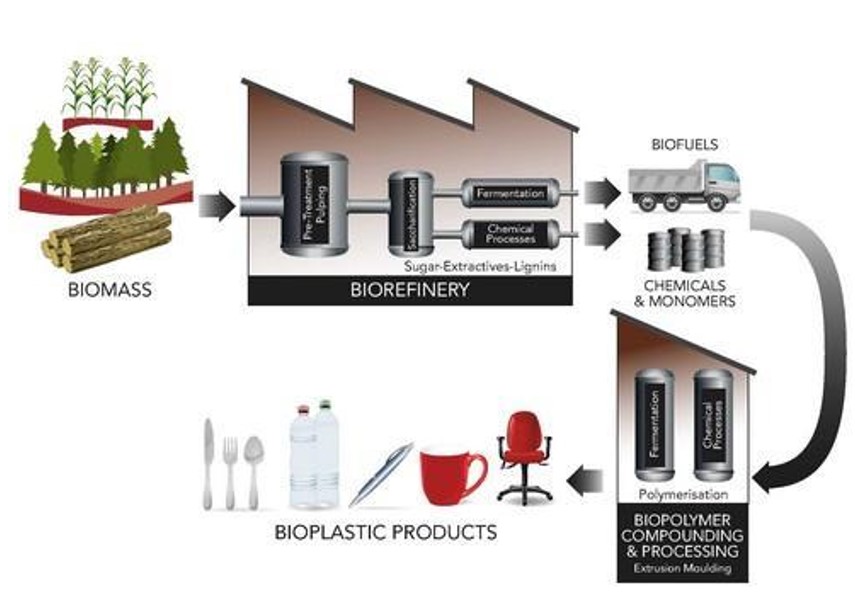- Definition and Types of Energy
- Myths And Misconceptions About Energy
- The Relationship Between Energy and Environment
- Climate Change and Carbon Footprint
- Greenhouse Gas Effect
- The Role of Human-Induced Greenhouse Gases and Energy Consumption
- Energy Efficiency and Sustainability
- Renewable Energy Sources and Future Perspectives (video)
- Play and Learn
- Solar Energy Conversions
- Solar Energy Worldwide
- Solar Energy in Partner Countries
- Positive and Negative Impacts
- Technologies for Harnessing Solar Energy
- Solar thermal energy technologies and applications
- Electricity Generation Methods
- Passive Heating and Cooling of Residences with the Sun
- Concentrator solar power (CSP) systems and electricity generation
- Systems and Applications That Generate Electricity directly from solar rays
- Photovoltaic Cells and Panels
- Domestic PV Systems
- Off-Grid PV Systems
- Hybrid Connected Systems
- Materials Used in PV Cells
- Play and Learn
Biorefinery Technology

Biorefinery technologies include methods that ensure sustainability and efficient use of renewable energy sources in the biofuel production process. Biorefineries, which are similar to oil refineries in terms of their basic structure, differ from traditional refineries in that they use biomass as raw material and operate under milder conditions. In this way, production is achieved with lower energy consumption, solid waste formation is prevented and the amount of wastewater is significantly reduced.
Biorefineries are based on a model that supports the production of biofuels, bioenergy and biomaterials by working in integration with agricultural enterprises. The key components of this model are:
- Agricultural Production: Cultivation of energy crops and provision of biomass resources.
- Logistics: Creation of appropriate logistics systems for the collection, transportation and processing of raw materials.
- Harvesting and Waste Management: Collection and evaluation of plant wastes.
- Densification and Storage: Pre-treatment of the raw material to make it suitable for the processing process.
- Biorefinery Processing Processes: Distribution of the resulting biofuel, energy, and other by-products.
- Evaluation of By-Products: Storage and distribution of animal feed and manure generated in the biorefinery process.
Biorefineries transform biomass into different products such as biofuels, biochemicals, and biomaterials by putting them through various physical, chemical, and biochemical transformation processes. In these processes, it is of great importance that biorefineries are flexible and have the ability to process different raw materials. As in oil refineries, the fact that biorefineries have a variety of raw materials increases resistance to economic fluctuations by ensuring continuity in production.
The fact that biorefineries are not only limited to biofuel production, but also include co-generation applications such as electricity and heat generation is an important factor that increases efficiency. This integrated approach supports the development of the biofuels sector and enables energy production to become more sustainable.
